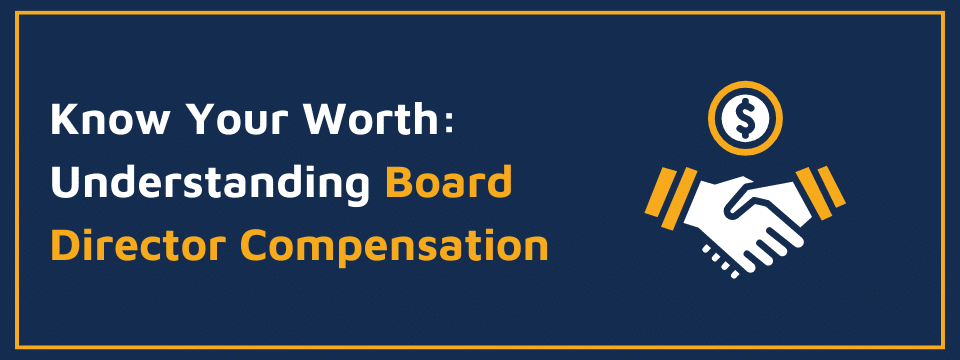
As you explore board opportunities, compensation is a critical aspect that demands thorough consideration. The landscape of board roles is diverse, as is the associated compensation, depending on factors like company nature, size, industry and stage in lifecycle. Arming yourself with the necessary knowledge about director compensation is essential to make informed decisions and position you for success.
One of the most significant factors in board compensation is whether the company is publicly traded or privately held. Public companies tend to have higher retainers. They are also subject to stringent regulations that require transparency in disclosing director compensation -- so you can find the information more easily. On the other hand, private companies enjoy greater flexibility in designing compensation packages, leading to a broader spectrum of offerings. However, they are harder to find information on. If there is a board spec for the opportunity (and there should be), it should include the compensation (and if it doesn’t, move on).
Board compensation goes beyond a simple annual retainer. It entails a mix of components unique to each company. This may include an annual retainer, additional fees for attending meetings, travel reimbursement and equity. The amount of the annual retainer varies based on company size, industry and ownership. Equity compensation also varies, with companies offering stock options or restricted stock units. Public directors often receive a significant portion of their compensation in stock options, while early-stage companies may provide equity-based compensation for board directors or advisory board members. Understanding these nuances is vital in evaluating board opportunities effectively.
In many companies, there is additional compensation for attending board and committee meetings, with some companies providing higher amounts for chairing committees or serving as board chair. Some companies also provide additional compensation that’s tied to the company's performance metrics. While board directors don't directly impact performance like employees do, these performance-driven metrics can substantially boost the director's remuneration, establishing a direct connection between their success and the company's overall performance.
Amidst the intricacies of board compensation, board candidates should also learn about the company’s Directors & Officers (D&O) Insurance. This insurance coverage offers essential protection to directors in case of lawsuits or claims related to their board activities. By having D&O insurance in place, directors can find reassurance in knowing they are shielded from personal liability and financial burdens that may arise during their tenure.
Thoroughly researching board opportunities goes hand-in-hand with understanding the diverse landscape of board compensation. Carefully evaluate the compensation structure of each company to ensure it aligns with your expectations and reflects the unique demands of the position.